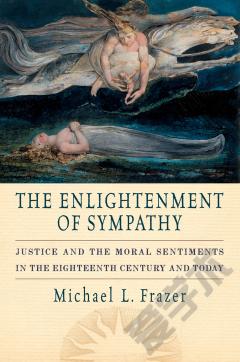The Enlightenment of Sympathy —— Justice and the Moral Sentiments in the Eighteenth Century and Today
----- 同情的启示:18世纪和今天的正义与道德情感
Although known as "the age of reason," the eighteenth century was actually an era in which many leading moral and political philosophers placed equal emphasis on feeling. While Enlightenment rationalists such as Immanuel Kant separated reflective reason from the unreflective mental faculties which must obey its commands, their sentimentalist contemporaries such as David Hume, Adam Smith, and J. G. Herder did not. Instead, they saw moral and political reflection as the proper work of the mind as a whole. Without emotion, imagination and the imaginative sharing of emotion then known as "sympathy," we would be incapable of developing the reflectively-refined moral sentiments which are the basis of our commitment to justice and virtue. This book seeks to reclaim the sentimentalist theory of reflection as a resource for enriching social science, normative theory, and political practice today.
{{comment.content}}








 京公网安备 11010802027623号
京公网安备 11010802027623号